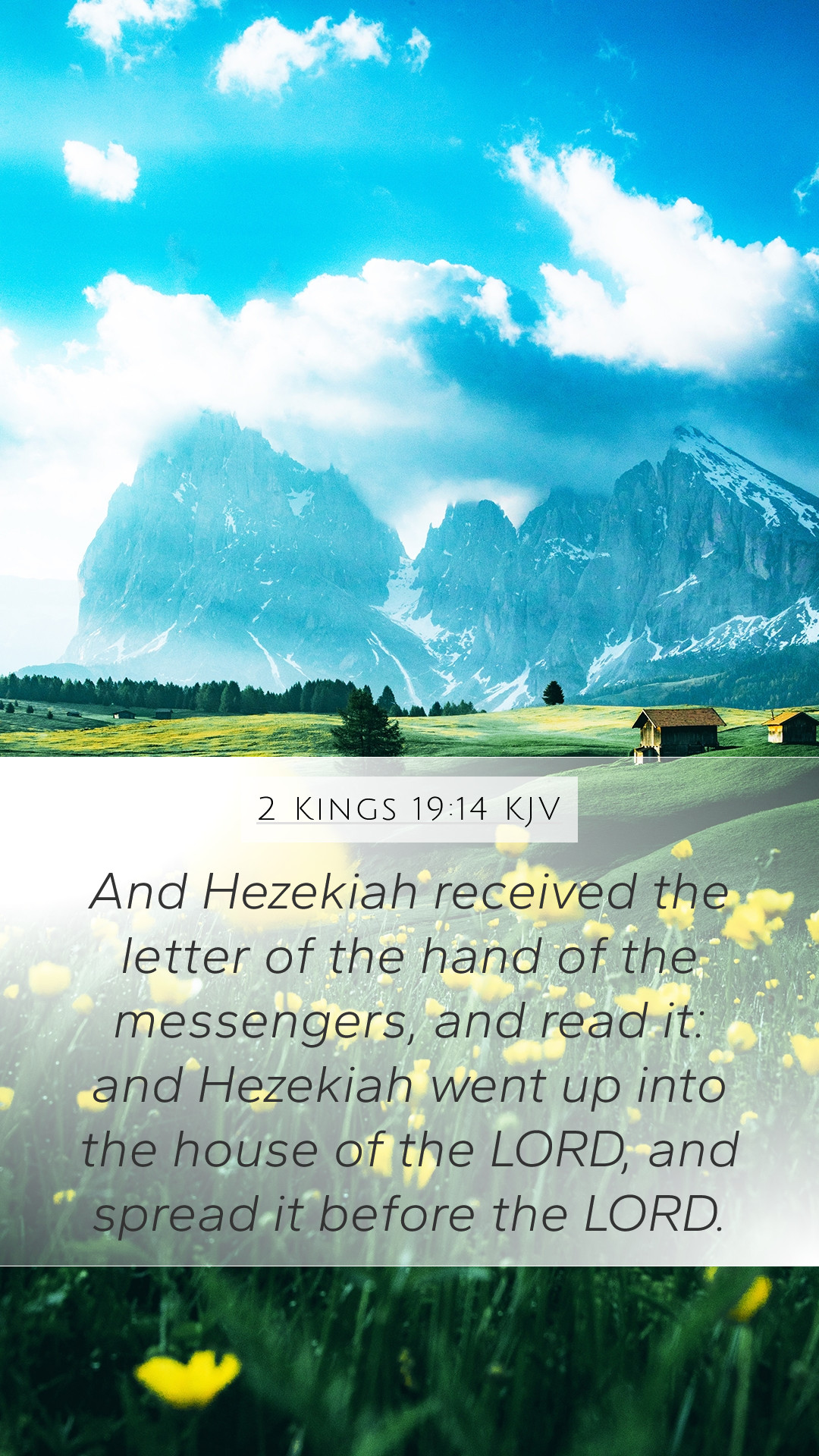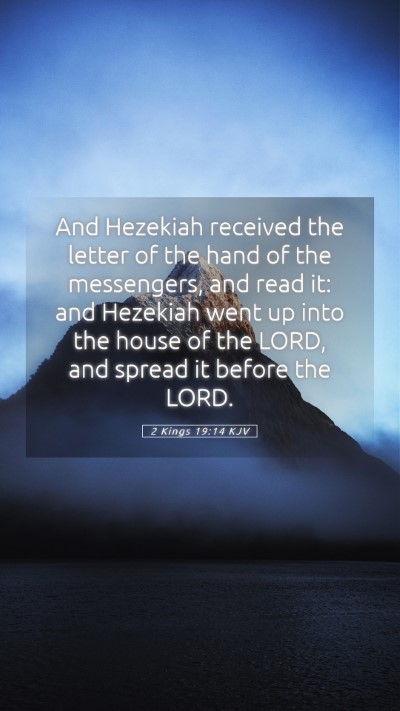Bible Verse Meaning: 2 Kings 19:14
2 Kings 19:14 states:
"And Hezekiah received the letter from the hand of the messengers, and read it; and Hezekiah went up to the house of the Lord, and spread it before the Lord."
Overview of 2 Kings 19:14
This verse occurs during a pivotal moment in the history of Israel when King Hezekiah is faced with a dire situation: the Assyrian king Sennacherib has sent a threatening letter to him, challenging the fortitude of Israel's God and demanding surrender. Hezekiah's response is profound and deserving of detailed Bible verse explanations.
Commentary Insights
- Matthew Henry's Commentary:
Matthew Henry emphasizes the importance of Hezekiah's faith in God. By taking the letter to the house of the Lord, Hezekiah demonstrates an act of dependence on divine intervention. He acknowledges his inability and turns to God for help, illustrating a core principle in Biblical exegesis: God is our refuge in times of trouble.
- Albert Barnes' Notes on the Bible:
Barnes highlights the significance of spreading the letter before the Lord, symbolizing transparency and honesty in prayer. By displaying the threat openly, Hezekiah is not obscuring his fears but rather laying them bare before God, which is fundamental in Bible study insights. This act is an example for believers on how to approach God with real concerns.
- Adam Clarke's Commentary:
Clarke notes that Hezekiah’s action of reading the letter and spreading it out is an act rooted in sacred trust. He suggests that believers should take their burdens and fears directly to God, implying that this verse serves as a model for Bible study lessons on prayer and reliance on God's sovereignty during crises.
Understanding the Context
To fully grasp the meaning of this verse, one must consider its historical and spiritual context. Hezekiah was a reformer king, committed to restoring the worship of Yahweh amidst a time of national distress. The Assyrian threat encapsulates a broader theme of reliance on God’s power rather than human might, which serves as a key component in scripture analysis.
Theological Implications
This incident highlights several theological concepts that are recurrent throughout the Old Testament:
- God's Sovereignty: Hezekiah's act implies recognition of God's ultimate authority over all nations.
- The Power of Prayer: This verse presents a compelling case for the efficacy of prayer, encouraging believers to bring their concerns to God.
- Divine Intervention: The aftermath of this act leads to a miraculous rescue, reinforcing the belief that God intervenes in response to sincere prayer.
Cross References
This verse relates to several other passages that enhance its meaning:
- Isaiah 37:14-20: Provides Isaiah's prophecy that God will deliver Jerusalem.
- Psalm 55:22: Encouragement to cast our burdens on the Lord.
- 2 Chronicles 32:20-21: Describes Hezekiah's prayer and God's response.
Application to Daily Life
For contemporary readers, 2 Kings 19:14 serves as a vital lesson in how to handle personal crises. By following Hezekiah's example, individuals can learn to:
- Seek God's Guidance: Turning to prayer in times of distress rather than resorting to panic.
- Be Honest with God: Presenting their situations openly and without fear, mirroring the transparency of Hezekiah.
- Trust in God's Deliverance: Recognizing that true safety lies not in military power, but in reliance upon God.
Conclusion
2 Kings 19:14 is more than just a narrative element; it embodies profound theological principles relevant to personal faith and corporate worship. Through the understanding of Scripture provided by various commentaries, believers can gain insights that empower their faith and guide their practices.
As individuals engage with this verse, it can serve as a touchstone for the meaning of Bible verses, fostering deeper reflections in Bible study groups, enriching their Bible study resources and enhancing their Bible study insights.


